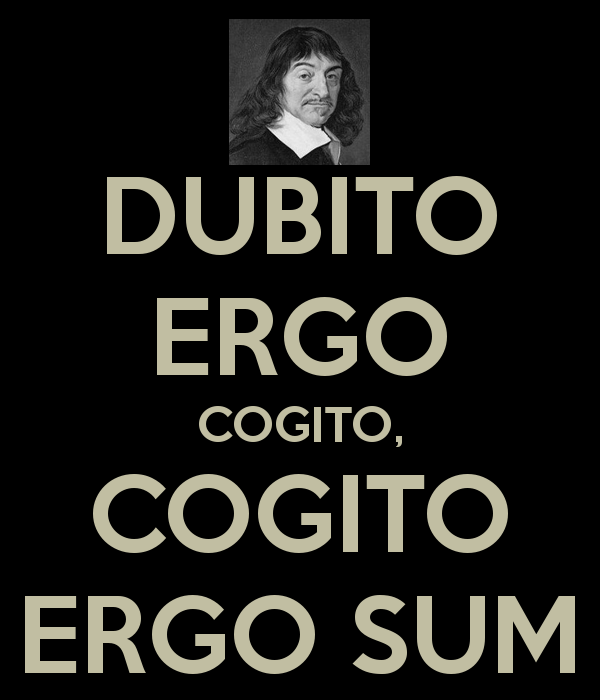


#Cogito ergo blogo how to#
The challenge? How to get the benefits of process (efficiency, compliance, consistency), without creating an unquestioning, unthinking environment, which, in the long run, dooms any process to irrelevance.īecause processes are the bedrock of large, complex organizations, we must somehow solve this problem. As such, they are important tools, but only that-tools. Processes embody our successes, our failures, our learning. We cannot reinvent the ‘how’ every day we come to work. They give shape and form to the everyday activities of business. Of course, we cannot live without processes. The process has become the end, not the means we have lost sight of the Why in the name of the How. Not life and death, but otherwise no different. Ultimately, we find ourselves in a situation where much of what we do no longer makes sense in a larger context. As we become more and more disconnected with the world, some steps become pointless, even counter-productive-but we can’t see it, let alone fix it.

Eventually, it becomes impossible to do anything but follow the ruts we ourselves have worn in the road. In fact, the more we ‘follow’ a process-the very thing we are supposed to do-the harder it becomes to see the bigger picture. Even if a process is perfectly in sync with the goals and objectives of an organization when first implemented, it quickly gets out of sync because the world changes. Technology changes, competition changes, strategy changes. And therein lies the danger: Because simply ‘following it’ is the worst thing we could possibly do. The whole point of breaking down a complex operation into discrete steps is to define a process so simple and straightforward virtually anyone could follow it. How can we make this process more efficient? How can we reduce the time it takes to accomplish this task? Smarter people ask, ‘Why are we doing this in the first place?,’ but no one asks, ‘Who could do this better?’ Indeed, the question seems out of place. From the assembly line to reengineering, we are all reductionists, determined to perfect ‘how’ we do it. Modern business is enamored with The Process. Like a wild animal caught up in the incomprehensibility of a net, he struggles at first, but eventually wears himself out and gives up, overwhelmed by the inevitability of it all.īefore we laugh at Kafka’s crazy world we should make sure we don’t live in it. He cannot prove he is innocent because he has no idea what he has supposedly done.
#Cogito ergo blogo trial#
The point is how the trial proceeds-incoherently, stupidly, inexorably. Lost in translation is Kafka’s real meaning-literally (but perhaps too obviously), The Process. He is frustrated and exhausted by his inability to understand what is going on or control his own destiny. Indeed, the only real effect of the trial is that it wears him down. He is not told what crime he is charged with, he is not allowed to call witnesses, there is no courtroom, no judge or jury-in short, there is no trial in the normal sense of the word. But the so-called ‘trial’ bears little relationship to a modern―or at least Western―legal proceeding. It is the Muir translation that gives us the well-known English title, The Trial.Īt first, this seems perfectly logical-after all, he is on trial. Originally written in German (though Kafka was a Czech), Der Prozess was first translated into English by Edwin and Willa Muir in 1937.


 0 kommentar(er)
0 kommentar(er)
